Twelve Romanian professionals came to Oslo with one goal in mind: How do I become a trainer in education for democracy and human rights? The answer was found on the fifth floor of the Savoy hotel, where EWC trainers awaited to give the Romanian delegation an intensive five-day-course in how to build a democratic, safe and inclusive school environment.
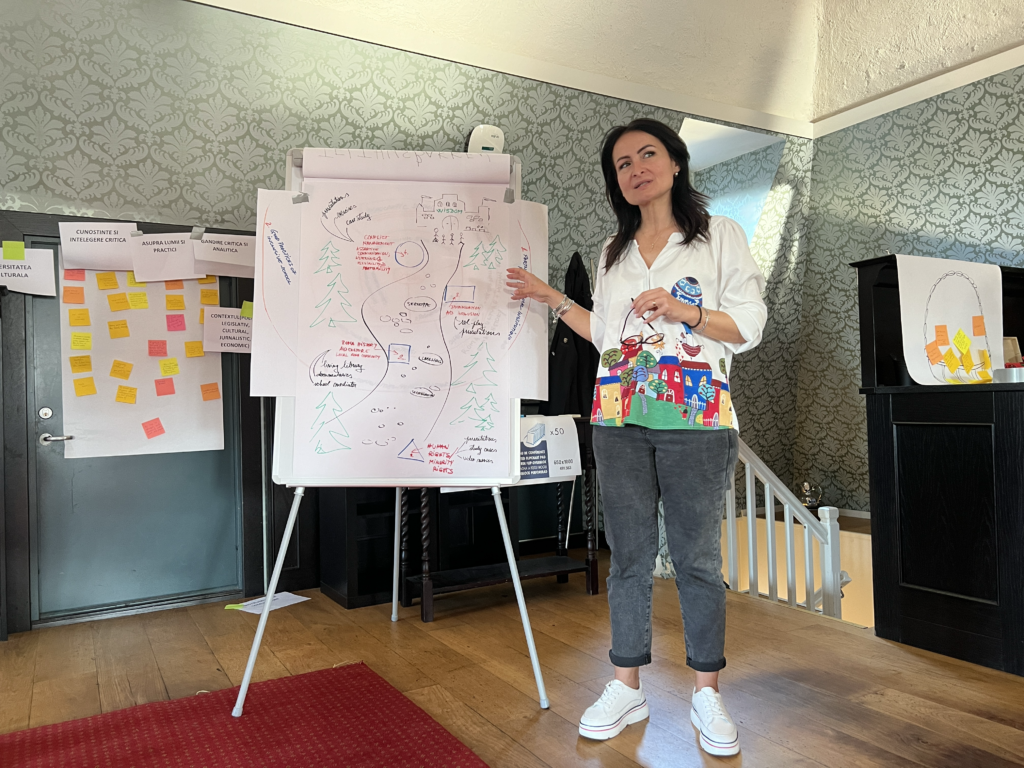
By Veslemøy Maria Svartdal
As the Romanian delegation of teachers, psychologists and other professionals descended upon Oslo, the weather gods seemed to be in an especially good mood – gracing the Norwegian capital with a tantalizingly warm and ripe autumn sun, which persistently shone through the windows of the old, stately Savoy hotel in the city centre.
This was EWC’s temporary location for the week. Filling the conference room with books, posters, pens, post-its and a projector – everything needed to train up another pool of competent trainers in education for democracy and human rights.
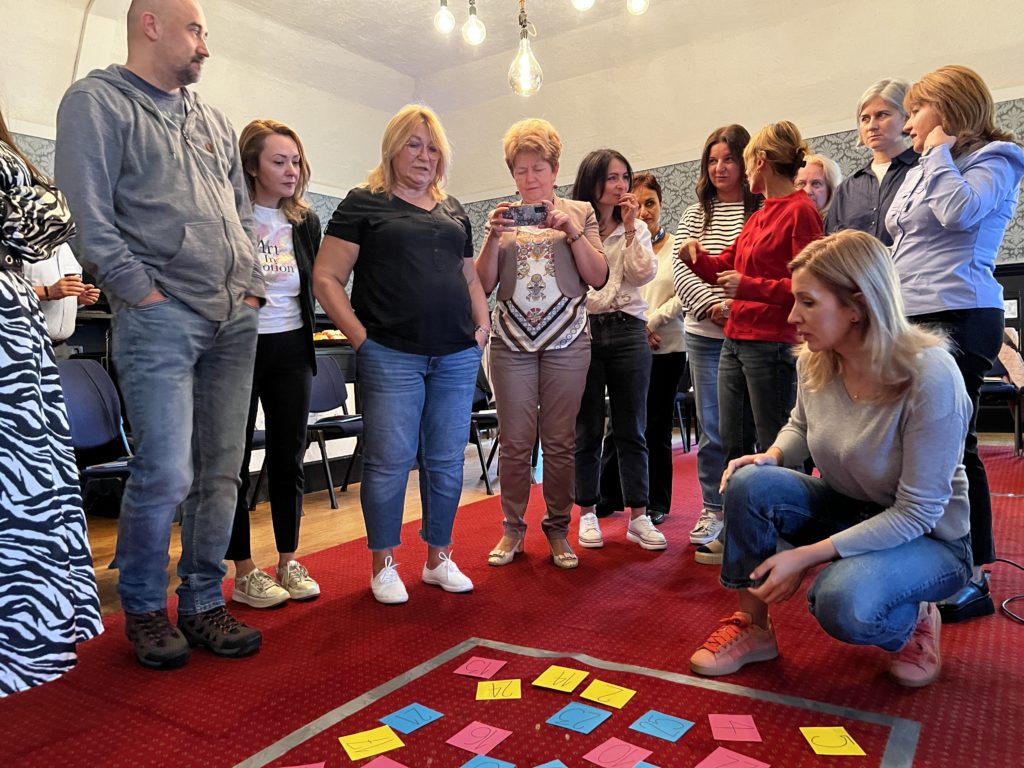
The course, which lasted from 16th to 20th September, marked the official start of a new bilateral initiative between the Romanian Social Development Fund and EWC titled “Promoting Inclusion and Quality Education in Romania.” The project continues EWC’s efforts to support inclusive and democratic education in Romania, and will last until April 2025.
EWC Senior Advisor Larisa Leganger Bronder excitedly welcomed the trainer candidates to Oslo.
“You are multipliers and can create a ripple effect which will inspire other schools in Romania,” she smiled.
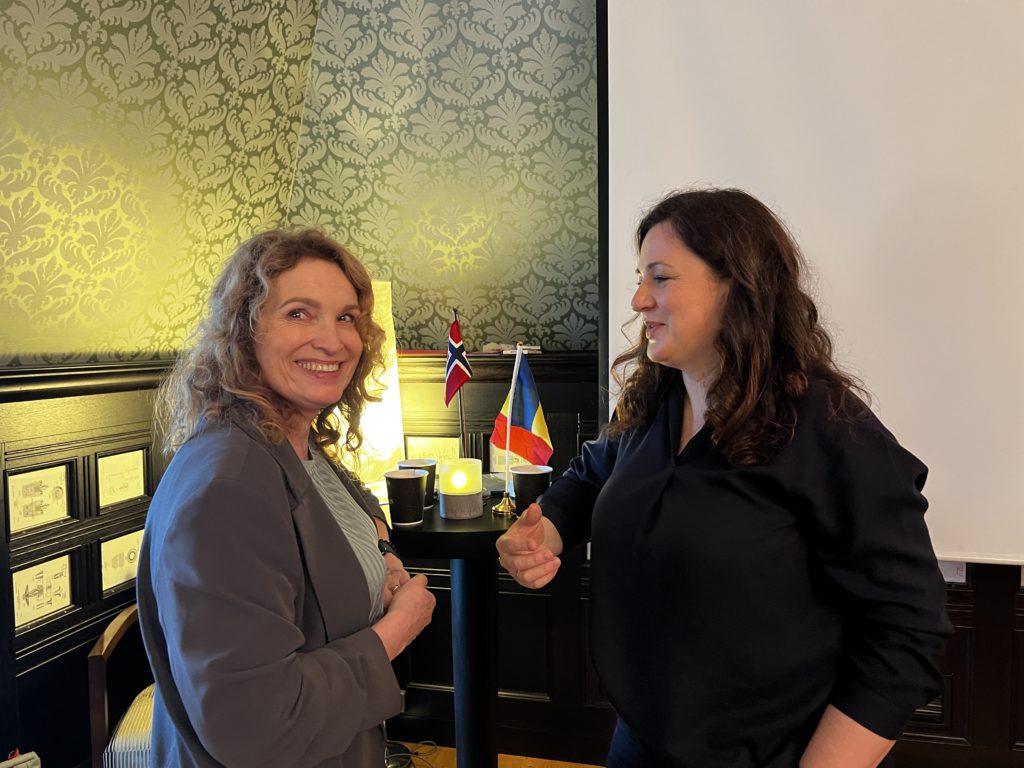
While EWC is lucky enough to already have a solid network of highly accomplished trainers, creating a new pool of trainers in Romania is both very helpful and highly needed. This measure represents the very core of EWCs new programme in Romania, bringing the Council of Europe’s standards on human rights and democracy education to schools in the Călărași and Suceava regions.
The goal for the new project is ambitious. EWC aim to bring educators, school management and other actors from the local communities in Călărași and Suceava together to work on building an inclusive and democratic school system.
Larisa was hardly alone in training the teacher trainer candidates. Experienced human rights trainers, among them Elizabeth Kasa Malksoo, Ramiza Sakip Ademova and Michaela Zătreanu, had all made the trip to Oslo to make sure that the participants were given the best training possible.
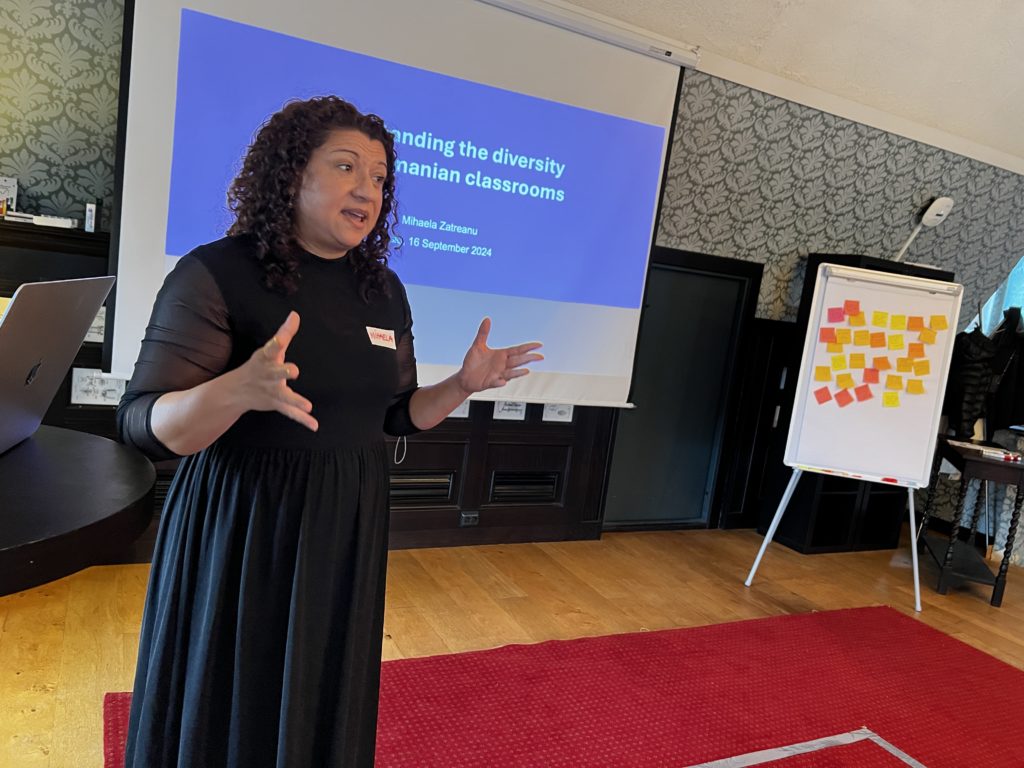
As several of them are Romanian themselves, they were able to communicate with the candidates in their native language.
One topic which was much discussed during the week was diversity in the Romanian classrooms.
“Diversity is becoming more and more important,” said trainer Michaela Zătreanu who herself belongs to the Roma community in Romania. “Romania accepts migrants because they lack unskilled laborers. They in turn will have children in our schools. We need to welcome them and celebrate their right to education. This is both the legally and morally right thing to do.”
Romania is indeed a very diverse country with 19 ethnic minorities that all have the right to use their language in school. Special emphasis was put on the Roma minority in the country, which sadly are the victims of stigmatization and bullying from pupils and teaches alike.
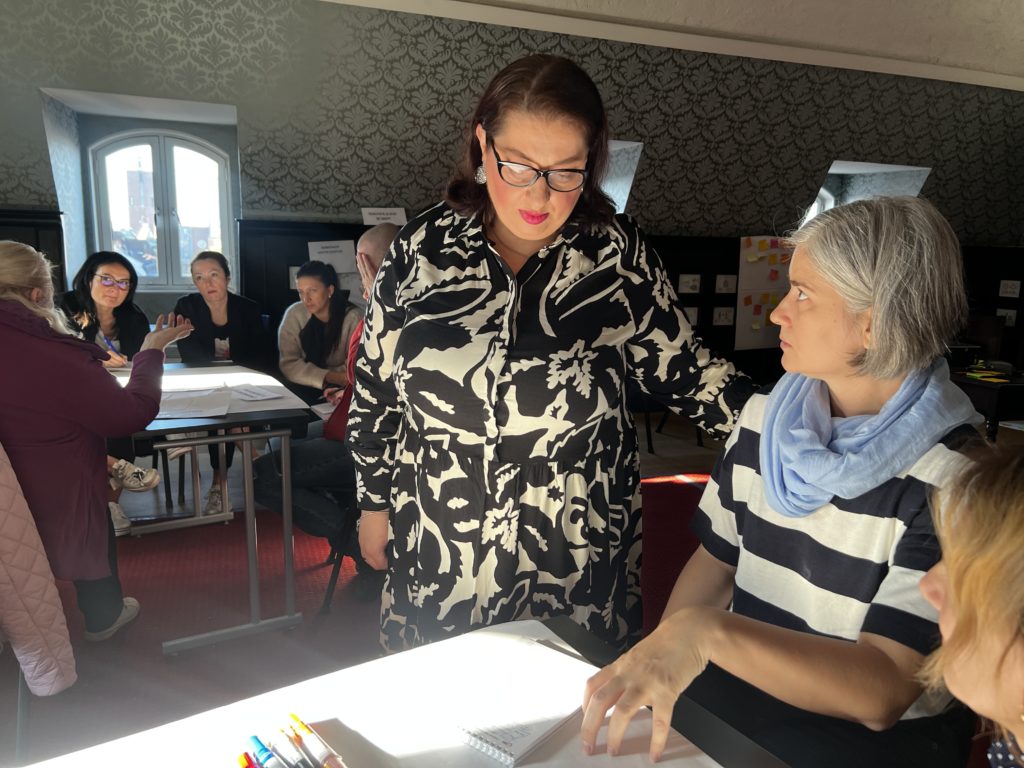
“You became teachers with the aim to bring happiness and support to those that need your protection,” Mihaela reminded the candidates.
The week was filled with workshops, training sessions, as well as trips to the Nobel Peace Center, The Oslo Metropolitan University, Romano Kher Roma Culture and Resouce Center and the 22. July Center. But the ultimate goal of the five-day-course was never let out of sight: To create an inclusive school that is able to provide all children with quality education in a safe environment, no matter their background.
“An inclusive school includes everybody,” Elizabeth explained while holding one of her presentations throughout the week. “It values diversity and human dignity. It gives everybody equal chances and promotes a culture of democracy.”
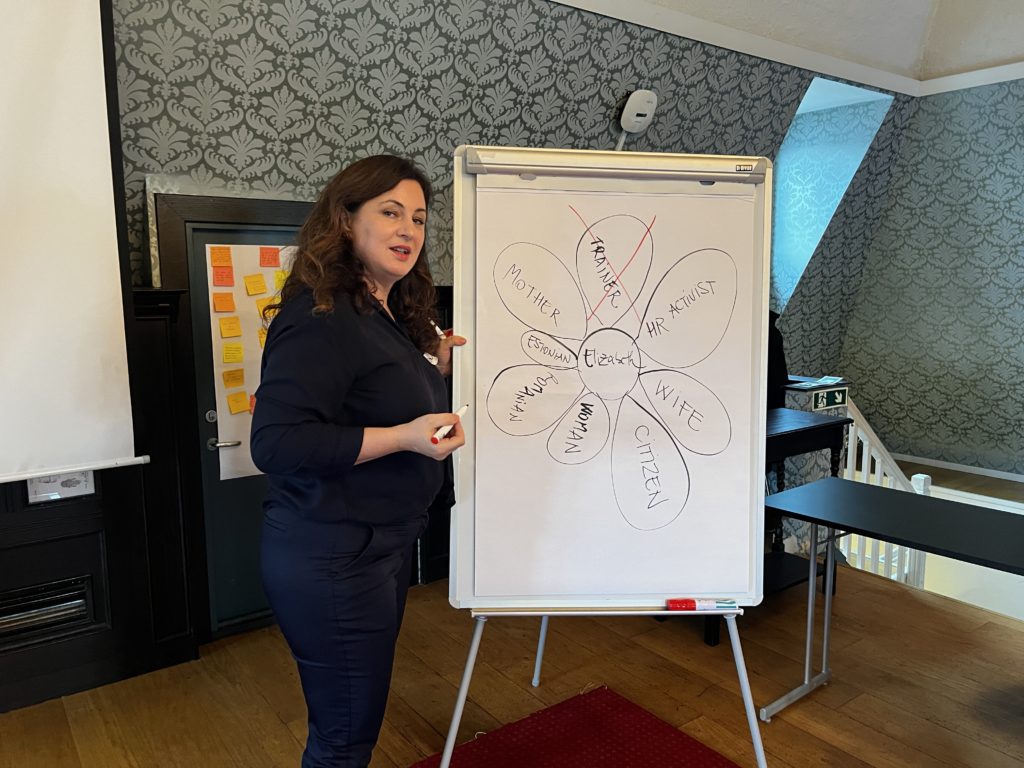
The most important thing for the participants when they return home and go on to become trainers in their own right, is to cultivate good cooperative ties to the schools.
This is part of the whole-school approach where school are asked to open up, and bring together notjust the teachers and pupils, but also the other staff members, parents and other members of the local community to build a safe, inclusive and democratic school environment.
“The school is not supposed to be a castle with closed walls,” Elizabeth concluded.
A lot of interesting questions were raised during the week: What happens in the classroom when one identity group has a conflict with another? Can you teach people about exclusion if you have never felt excluded yourself? How can the participants teach their newfound knowledge to teachers, educators, school staff and civil servants back home?
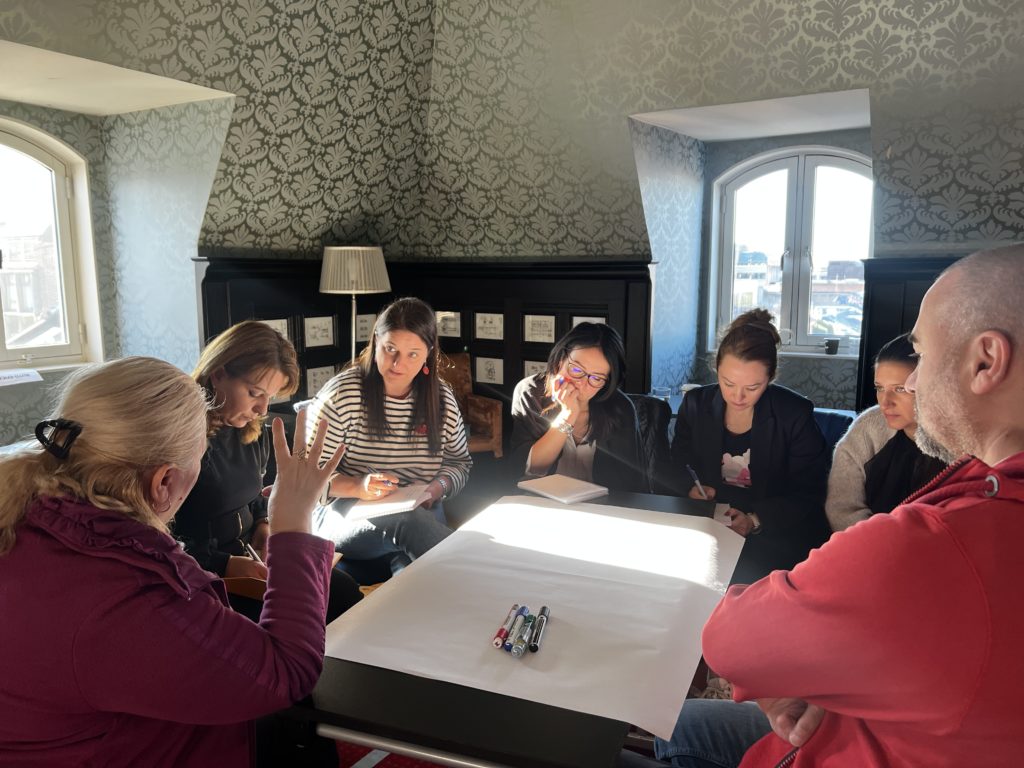
No one becomes a fully-fledged trainer in just a week’ s time. That is why the training will continue in Romania throughout the year, preserving the professional and friendly ties created during the sunny stay in Oslo.
The project is implemented under the Local Development, Poverty Reduction, and Enhanced Roma Inclusion programme and funded by the EEA Norway Financial Mechanism 2014-2021.